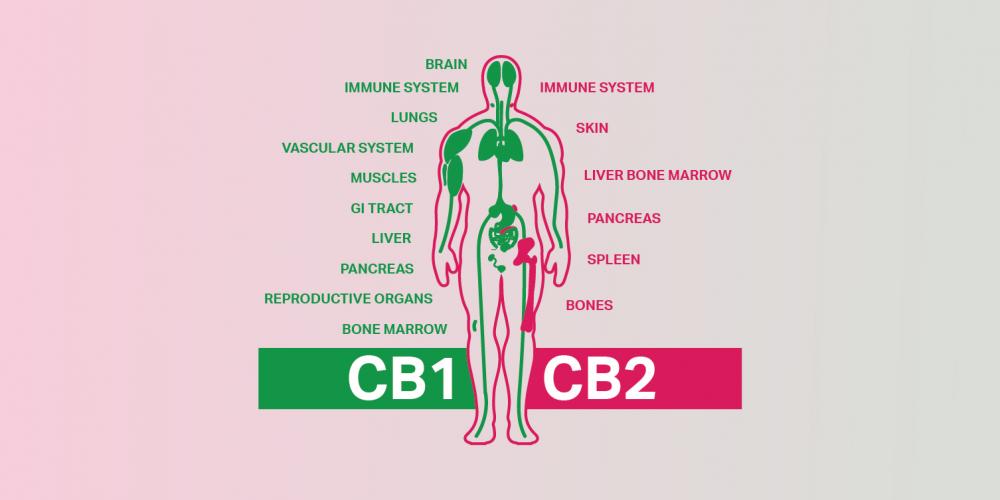
Supporting our Endocannabinoid System (ECS)
The Endocannabinoid System (ECS) is a system that few of us have heard of which is extraordinary considering this system regulates and controls many of our critical body functions such as memory, learning, pain control, inflammation and immune responses to name a few.
What is the Endocannabinoid System (ECS)?
The endocannabinoid system explained simply is a network of lipid type chemicals and cell receptors that are densely packed throughout the brain and the body. A group of receptors in the brain, called the cannabinoid receptors or CB1 receptors, control the levels and activity of most of the neurotransmitters in the brain. They regulate things immediately such as hunger, temperature, and alertness, and they can turn up or down any system which needs to be adjusted.
To stimulate the CB1 receptors, the body produces endocannabinoids, which are structurally like the chemicals in the produced in the hemp. We all have these chemicals in small amounts. Unfortunately, using these chemicals from hemp can have the unwanted side effects we all know about.
A second type of receptor, called the CB2 receptor, exists as part of the immune system and works to control the immune system, help in managing the immune system of the gut, and in controlling intestinal inflammation and the pain that often accompanies these concerns.
Feeding the Endocannabinoid System
There are powerful natural ways to support the ECS and ensure that it functions at its optimal level with herbs and nutrients mentioned below.
Omega-3 fatty acids are required by the ECS for the manufacture of chemicals used. These omega-3s are found in plant-based seeds such as flaxseeds, chia seeds and sesame seeds, nuts as well as oily fish. Oily fish provide the best source since plant-based omega-3s need to be converted into EPA and DHA which are not converted into meaningful amounts. Whilst oily fish may be a good source, I would recommend krill oil since krill is a source of omega-3s which are surrounded by phospholipids meaning that the omega-3 fats are able to enter every cell and gland with ease. Neubria’s Krill Oil is a very good source of this bioavailable omega-3 fats.
Green Tea contains compounds that prevent the breakdown of endocannabinoids and compounds which bind to cannabinoid receptors helping to support their function.
Organic Matcha Powder is a form of green tea that goes through a careful growth and extraction process making it more potent than green tea.
Turmeric is a spice that contains curcumin which is known to raise endocannabinoid levels aside from providing multiple other benefits. Unfortunately, turmeric is ill-absorbed by the body which is why it is better to take curcumin and curcumin-type compounds found in Turmeric Curcumin C3 Complex.
Unfortunately, millions of people around the world live with chronic pain. They rely on pain killers which inherently are not without side effects. Palmitoylethanolamide (PEA) is a fatty acid naturally found in the body that targets chronic pain. It works at any pain site to turn off pain signals1 and so offers a safe and non-addictive option to help reduce the reliance on pain killers with side effects. Lamberts Neuro Logical combines PEA with vitamins B1, B6 and B12 to support neurological functions.
Nurturing the endocannabinoid system
Like many systems in the body, ECS is greatly affected by stress and stress hormones like cortisol. Exercise, meditation, and massage are just some of the options that nurture the ECS. Of course, if you are the stressful type or person where everything affects you, you may wish to consider reducing cortisol and other stress hormones using a supplement such as Magnolia Rhodiola Complex.
REFERENCE: 1. Gabrielsson L, Mattsson S, Fowler CJ. Palmitoylethanolamide for the treatment of pain: pharmacokinetics, safety and efficacy. Br J Clin Pharmacol. 2016 Oct;82(4):932-42.
DISCLAIMER: The views, opinions and information expressed in this article and on Victoriahealth.com Ltd are those of the author(s) in an editorial context. Victoriahealth.com Ltd cannot be held responsible for any errors or for any consequences arising from the use of the information contained in this editorial or anywhere else on the site. Every effort is made by the editorial and content team to see that no inaccurate or misleading information, opinion or statement appear, nor replace or constitute endorsement from medical bodies or trials unless specified. Victoriahealth.com Ltd accept no liability for the consequences of any inaccurate or misleading data, information, opinion or statement. Information on Victoriahealth.com Ltd and in the editorials is provided for informational purposes only and is not intended as a substitute for the advice provided by your physician or other healthcare professional. You should not use the information on this website or in the editorials for diagnosing or treating a health concern or disease, or for the replacement of prescription medication or other treatment